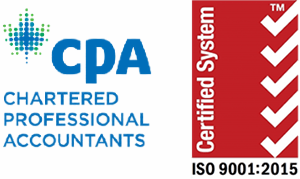Small business owners often find it difficult choosing the right tax structure for their business. This is because they are unable to correctly categorize their business. Therefore, they end up paying more tax than necessary. If you are a small business owner who is struggling to choose the right tax structure, don’t worry! We are here to help. For over 3 decades, we have been helping business owners like yourself to organize finances, create wealth, and transform that wealth into a legacy.
Make sure to read the entire article to learn more about which tax structure might be suitable for your company. Want to discuss this further in detail? Click here to book a FREE consultation with one of our experts.
Types of Businesses:
There are three main types of legal entities through which your business can operate – Corporation, Sole Proprietorship, and Partnership. Each of these entities have certain advantages and disadvantages.
Incorporation
A corporation is a form of legal entity. When a company incorporates, it becomes its own legal structure that is independent from the owners of the business. There are many benefits of incorporating your business.
Pros
- It is a separate legal entity that allows you to keep retained earnings separate from your personal income.
- One of the biggest benefits of corporations is having limited liability. This means that your personals assets are not vulnerable to any potential lawsuits against the company.
- Small Business Deduction allows you to access a significantly lower tax rate.
- Corporation offers Tax Strategies to access any retained earnings in the company
Cons
- Corporations are more intricate to set up. For this reason, they require professional guidance.
Incorporating your business for the first time may feel overwhelming. Often times, business owners opt to incorporate their business online. However, they do not consider that these online registries do not provide any advice or guidance specific to their business. Incorporating your business requires countless important decisions regarding directors, shareholders, share structure, effective date etc. These decisions have significant legal and tax implications. It is extremely difficult for business owners to make all these decisions without the guidance of an experienced professional.
But don’t worry! CPA4IT has got you covered. We provide our clients with guidance and strategies on how to leverage the tax benefits associated with incorporation. Our team of experts will help you choose the best corporate structure for your business. We also ensure all the relevant forms and filings of our clients are completed on time. We have over 3 decades of experience in helping businesses owners register for incorporation. With the help of our vast experience and industry knowledge, we enable our clients to get their new business off the ground and running quickly and easily. So what are you waiting for? Click here to book a FREE consultation with our experts and discuss this further!
Sole Proprietorship
In this type of legal entity, the business is owned and managed by a single person. There are several benefits of operating your business as a sole proprietor.
Pros
- Sole proprietorships are inexpensive to set up.
- Sole proprietorships are also eligible to deduct expenses from their taxable income.
Cons
- One of the biggest drawbacks of sole proprietorships is unlimited liability. This means that you are liable for your business activities. Therefore, your personal assets like house, car, savings, etc. are vulnerable to any potential lawsuits
- It is very difficult to raise funds as a sole proprietorship. This is because investors are reluctant to invest their money in a company that is not formally registered.
- It is mandatory for sole proprietorships to have a Dec 31st Year End
Partnership
In a business partnership, two or more people combine their resources to set up a company. It can be better described as a group of sole proprietorships working together. Here are the pros and cons of having a partnership.
Pros
- There are fewer legal obligations associated with a partnership.
- Partnerships generally have access to more capital compared to sole proprietorships.
Cons
- It is a combination of a sole proprietors working together and the benefits are very limited
- Partnerships also have unlimited liability. This means that all the personal assets of the partners are vulnerable to any potential lawsuit.
- All income generated through the business must be distributed between the partners.
Not sure which tax structure is ideal for your business?
Looking to analyze your potential tax savings? We have developed a Sole Proprietor vs. Corporation calculator tool, which has been designed to help you calculate the potential tax savings you could access by incorporating your business. Simply click here to utilize our calculator and review your potential tax savings.
Still unsure about which tax structure is right for your business? Don’t worry! Our team of experts can help you in making the right decision. Click here to book a FREE consultation with our experts to discuss this in detail.







